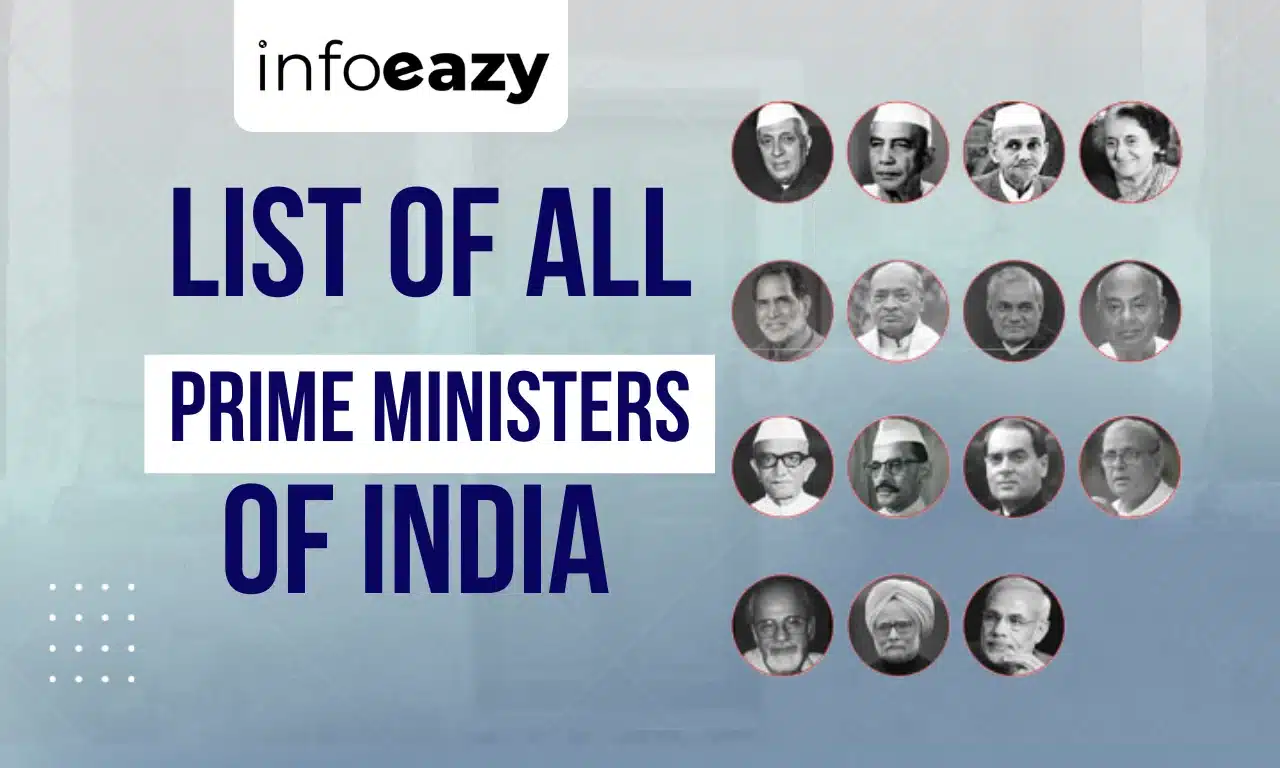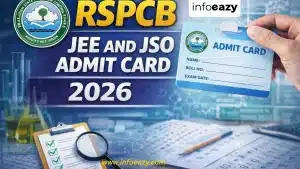The Prime Minister of India is the chief executive of the Indian government and holds the most powerful political position in the country. Since India gained independence in 1947, several dynamic leaders have taken on this prestigious role, each contributing to the nation’s political, economic, and social development in their unique ways. In this article, we present a detailed list of all Prime Ministers of India from 1947 to 2025, along with their tenure, political affiliation, and key contributions.
Role of Prime Minister in India
The Prime Minister of India is the head of the government and is responsible for executing the country’s policies and steering the nation’s growth. Appointed by the President, the Prime Minister leads the Council of Ministers and plays a vital role in both domestic and foreign affairs. From Jawaharlal Nehru to Narendra Modi, India has seen leaders with distinct ideologies and leadership styles.
Also Check: List of All Presidents of India
Complete List of All Prime Ministers of India (1947-2025)
Below is a chronological list of all individuals who have served as the Prime Minister of India. This list includes their full name, term of office, and political party.
| Complete List of All Prime Ministers of India (1947-2025) | |||
| S.No | Name of Prime Minister | Tenure | Political Party |
| 1 | Jawaharlal Nehru | 15 Aug 1947 – 27 May 1964 | Indian National Congress |
| 2 | Gulzarilal Nanda | 27 May 1964 – 9 June 1964 (Acting) | Indian National Congress |
| 3 | Lal Bahadur Shastri | 9 June 1964 – 11 Jan 1966 | Indian National Congress |
| 4 | Gulzarilal Nanda | 11 Jan 1966 – 24 Jan 1966 (Acting) | Indian National Congress |
| 5 | Indira Gandhi | 24 Jan 1966 – 24 Mar 1977 | Indian National Congress |
| 6 | Morarji Desai | 24 Mar 1977 – 28 Jul 1979 | Janata Party |
| 7 | Charan Singh | 28 Jul 1979 – 14 Jan 1980 | Janata Party (Secular) |
| 8 | Indira Gandhi | 14 Jan 1980 – 31 Oct 1984 | Indian National Congress |
| 9 | Rajiv Gandhi | 31 Oct 1984 – 2 Dec 1989 | Indian National Congress |
| 10 | Vishwanath Pratap Singh | 2 Dec 1989 – 10 Nov 1990 | Janata Dal |
| 11 | Chandra Shekhar | 10 Nov 1990 – 21 Jun 1991 | Samajwadi Janata Party |
| 12 | P. V. Narasimha Rao | 21 Jun 1991 – 16 May 1996 | Indian National Congress |
| 13 | Atal Bihari Vajpayee | 16 May 1996 – 1 Jun 1996 | Bharatiya Janata Party |
| 14 | H. D. Deve Gowda | 1 Jun 1996 – 21 Apr 1997 | Janata Dal |
| 15 | I. K. Gujral | 21 Apr 1997 – 19 Mar 1998 | Janata Dal |
| 16 | Atal Bihari Vajpayee | 19 Mar 1998 – 22 May 2004 | Bharatiya Janata Party |
| 17 | Dr. Manmohan Singh | 22 May 2004 – 26 May 2014 | Indian National Congress |
| 18 | Narendra Modi | 26 May 2014 – Present (2025) | Bharatiya Janata Party |
Acting Prime Ministers of India
At times, interim leadership was required between permanent appointments. These acting Prime Ministers ensured continuity in governance during transitions. Gulzarilal Nanda served twice as acting PM after the deaths of Nehru and Shastri.
Longest and Shortest Serving Prime Ministers
Some Prime Ministers served for extended periods, while others had very short tenures. Nehru was the longest-serving PM, while Vajpayee’s first term lasted just 13 days. Narendra Modi now ranks among the longest-serving PMs after Nehru.
Key Highlights of India’s Prime Ministers
Every Prime Minister has contributed to the country’s development in different ways. Their decisions have impacted India’s democracy, economy, defense, and global relations. Here’s a glimpse at some of the most influential Prime Ministers of India.
1. Jawaharlal Nehru (1947-1964)
Nehru was India’s first Prime Minister and served for 17 years. He laid the foundation of a secular, socialist, and democratic republic. His policies focused on industrial growth, education, and global non-alignment.
2. Lal Bahadur Shastri (1964-1966)
Shastri led India through the 1965 war with Pakistan and promoted agricultural self-reliance. His slogan “Jai Jawan Jai Kisan” became a national motto. He died in office under mysterious circumstances.
3. Indira Gandhi (1966-1977, 1980-1984)
India’s only woman Prime Minister, Indira Gandhi was known for her decisive leadership. She led India to victory in the 1971 war and imposed Emergency in 1975. Her tenure remains one of the most debated in Indian politics.
4. Rajiv Gandhi (1984-1989)
Rajiv Gandhi brought a technology-driven vision to India and modernized its telecom and IT sectors. He emphasized youth empowerment and education reforms. His tenure ended with his tragic assassination in 1991.
5. P. V. Narasimha Rao (1991-1996)
Rao is often called the architect of India’s economic reforms. His liberalization policies opened India’s economy to global markets. He worked closely with economist Dr. Manmohan Singh to initiate crucial structural changes.
6. Atal Bihari Vajpayee (1996, 1998-2004)
Vajpayee’s leadership is remembered for nuclear tests, infrastructure growth, and diplomatic efforts with Pakistan. His government launched the Golden Quadrilateral project. He was respected across party lines for his statesmanship.
7. Dr. Manmohan Singh (2004-2014)
A renowned economist, Singh provided stable governance and maintained economic growth. His UPA government introduced key policies like RTI, RTE, and MNREGA. Despite criticism, he is praised for his integrity and reform-oriented leadership.
8. Narendra Modi (2014-2025)
Modi is known for his bold decisions such as GST, demonetization, and Article 370 abrogation. He launched national missions like Digital India, Swachh Bharat, and Make in India. His leadership continues to shape India’s global image in 2025.
List of All Prime Ministers of India FAQs
Q1. Who was the first Prime Minister of India?+
Q2. How many Prime Ministers has India had till 2025?+
Q3. Who is the longest-serving Prime Minister of India?+
Q4. Who is the current Prime Minister of India in 2025?+
Q5. Who was India’s only woman Prime Minister?+
Tags: List of All Prime Ministers of India Prime Ministers of India




